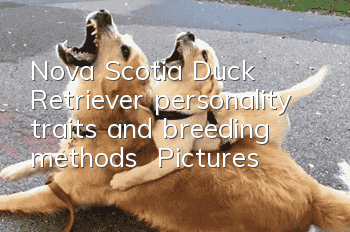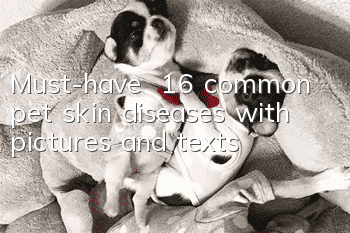Nova Scotia Duck Retriever personality traits and breeding methods | Pictures

Chinese name: Nova Scotia Duck Retriever
Common names and aliases: Nova Scotia duck lure dog, creek duck dog, Amazing duck lure dog
English name: Nova Scotia Duck Tolling retriever
Origin: Canada
Body size: medium
Reproduction method: viviparous
1. Appearance characteristics of the Nova Scotia Duck Retriever
The Nova Scotia Duck Retriever has a sharp, slightly wedge-shaped head. The skull is broad, but only slightly rounded, and appears flat when the ears are on alert. The back of the head is not protruding and the cheeks are flat. The length of the skull, from the back of the head to the stop, is slightly longer than the length from the stop to the tip of the nose. The head should be proportional to the size of the body.
2. Characteristics of the Nova Scotia Duck Retriever
The Nova Scotia Duck Retriever is alert, friendly, and intelligent. Many Terrells have a melancholy expression when not working and appear highly focused and enthusiastic when working. The gait combines strength and ease, showing good reach and strong rear drive. The feet cannot be turned outward or inward, and the legs should be in one line during movement. When accelerating in the natural gait, the dog's feet converge on a center line and the topline remains level.
3. How to raise Nova Scotia Duck Retrievers
Nova Scotia Duck Retrievers love to eat just about anything. As long as you eat it and let it see it, it will slander you. Also, you should pay attention to the diet you give your dog. Don’t feed meat, chicken liver, chicken bones, milk, etc., as eating too much can lead to diarrhea. Especially milk, chicken bones are softer than other bones. Therefore, it is easy to get stuck in the dog’s throat or intestines. If you really want to feed it, feed it fresh goat milk.
Guess you like it
Laizhou Red | Neapolitan Mastiff | German Black Shellfish | Snow Mastiff | Czech Wolfdog | Kunming Dog | British Setter | Hericium Terrier
Basset Griffin Vendéen | Havanese | Rottweiler | Norwegian Terrier | Czech Terrier | Tibetan Terrier | Swedish Corgi | Toy Fox Terrier
Sussex Spaniel | Bedlington Terrier | Dogs with loss of appetite | Canary Dog | Siberian Husky | Komondor | Brazilian Mastiff
Karelian Bear Dog | Bergamasca | New Guinea Singing Dog | Skye Terrier | Thai Ridgeback | Brussels Griffon
- What should I do if my dog has fleas? What should I pay attention to when cleaning and caring for it?
- Methods and steps of clicker training for pet dogs
- Dog has canine distemper
- The main reasons why dogs lose hair
- Will the puppy recognize its owner after being beaten?
- Does the dog recognize its original owner?
- Do crested dogs recognize their owners?
- Why is it forbidden to breed wolf green dogs?
- Homemade treatment for dog ear hematoma
- Can a dog recover from being skinny and skinny?



